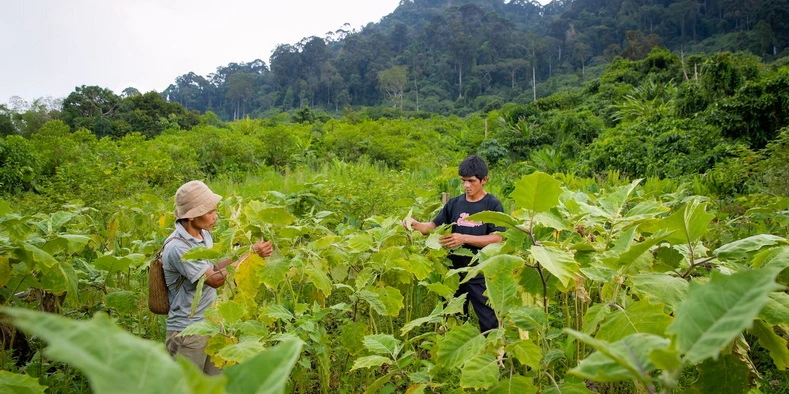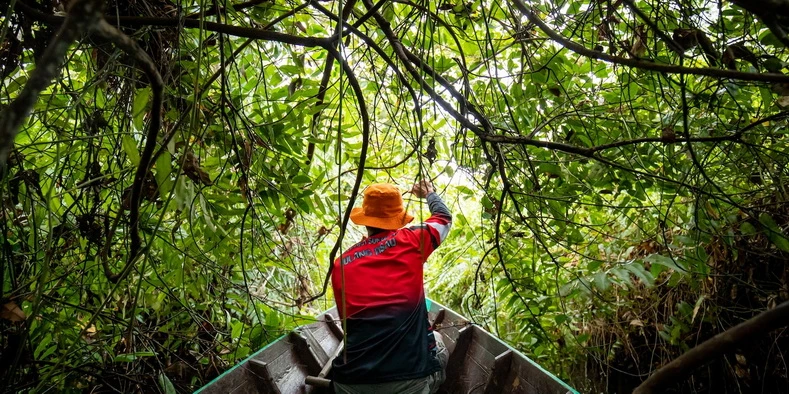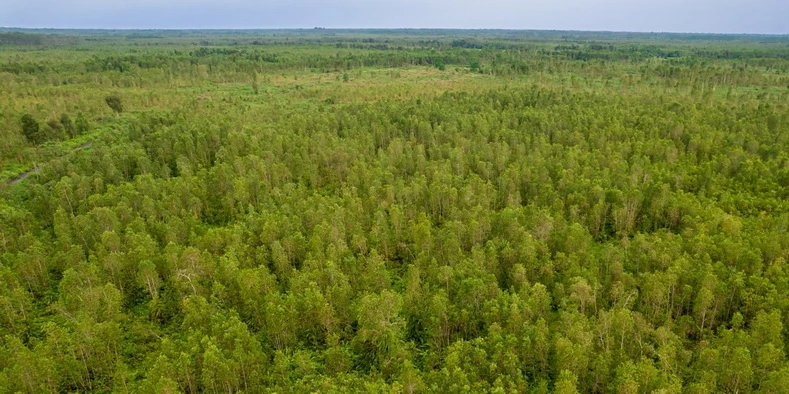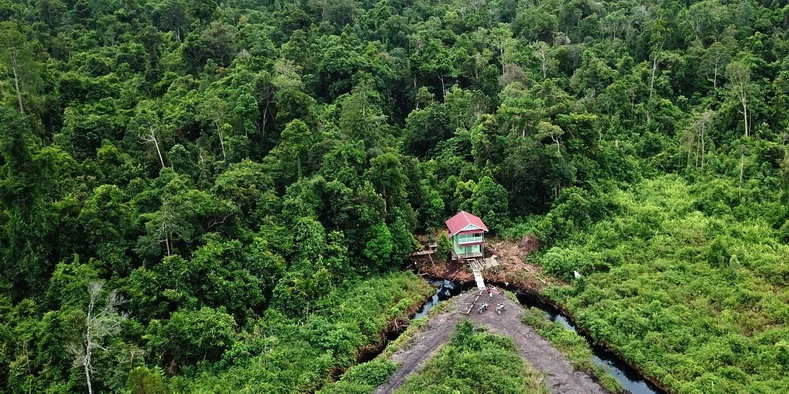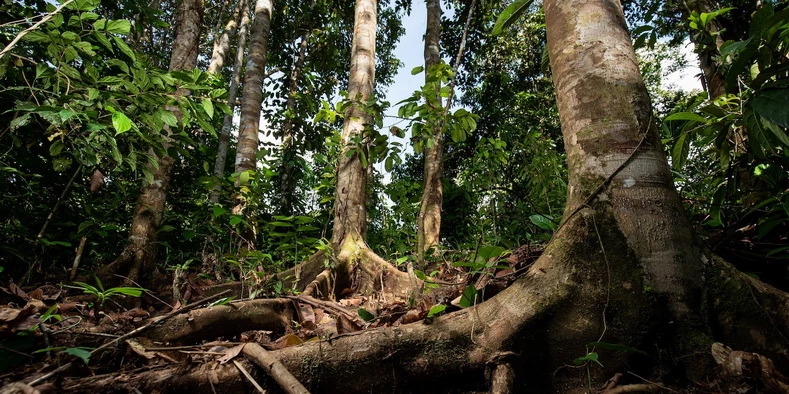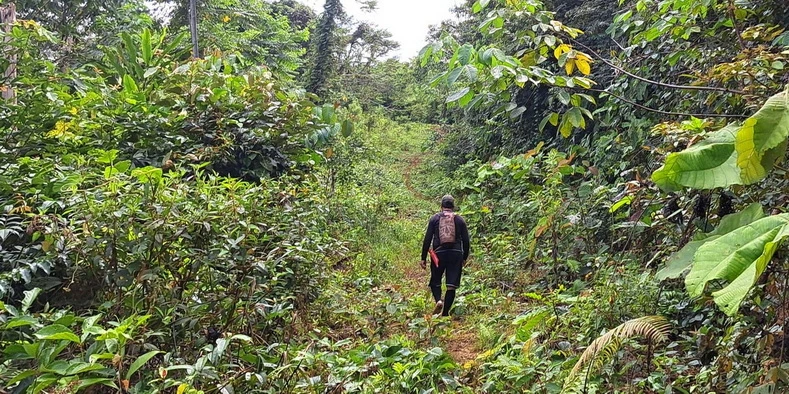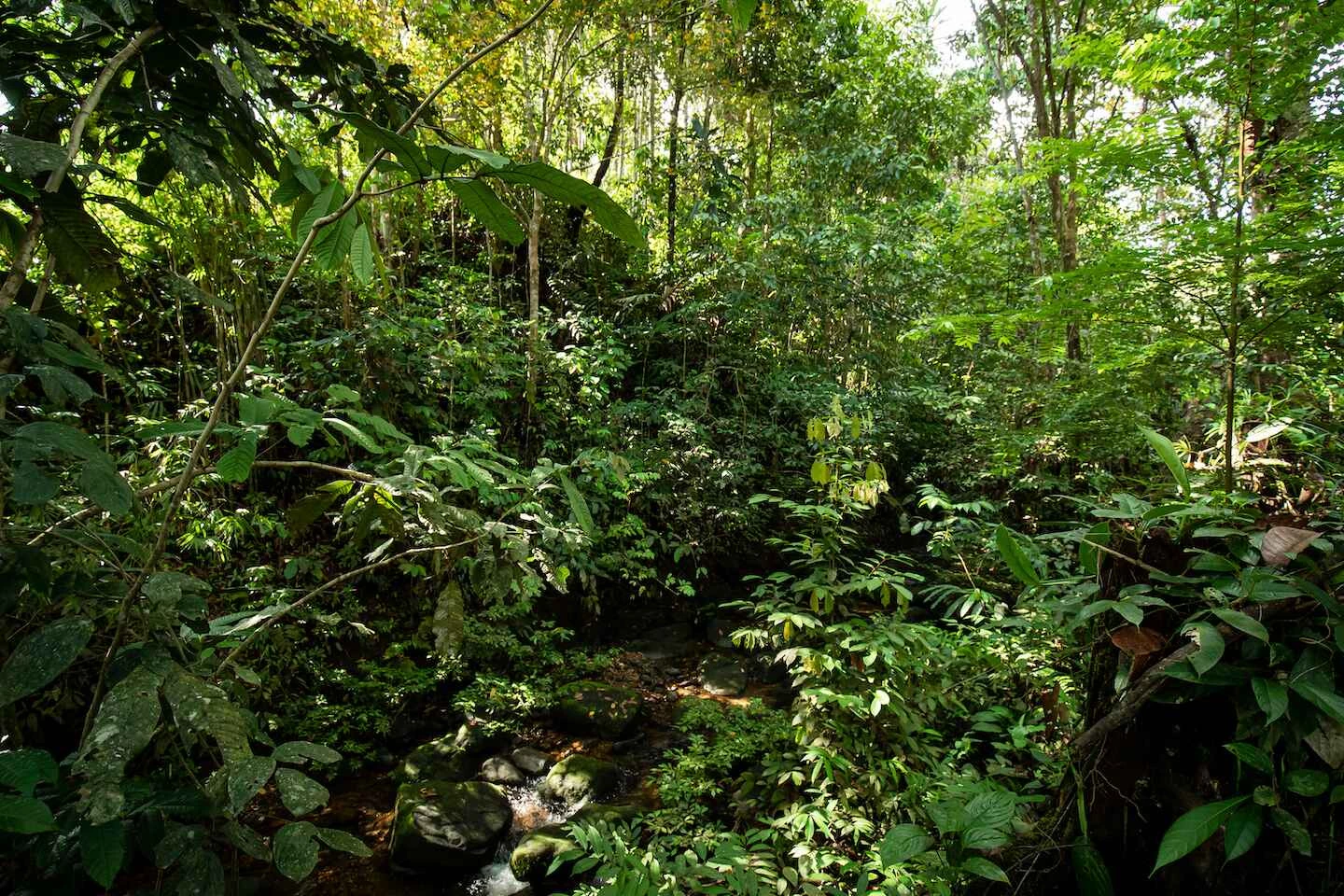Bahenap Village
- Kapuas Hulu, West Kalimantan, Indonesia
- 10,915 ha
Supporting nature, respecting spirituality and improving lives
There are 232 types of animals and plant at Bahenap Village Forest, of which 78 species of plant and 19 species of animal are categorized as endemic and listed on the IUCN Red List.
The village community depends on the forest and the Kalis river that runs through it for their daily practical and spiritual needs. But without forest management and options for alternative livelihoods, unsustainable agriculture practices, illegal mining, and forest encroachment threaten the biodiversity and ecosystem of the area.
The Rimba Collective brings a long-term funding and performance-based payments approach to the village project. Working with project operator Bentang Kalimantan Tangguh, we support the community and prevent biodiversity loss, deforestation, and forest degradation.
